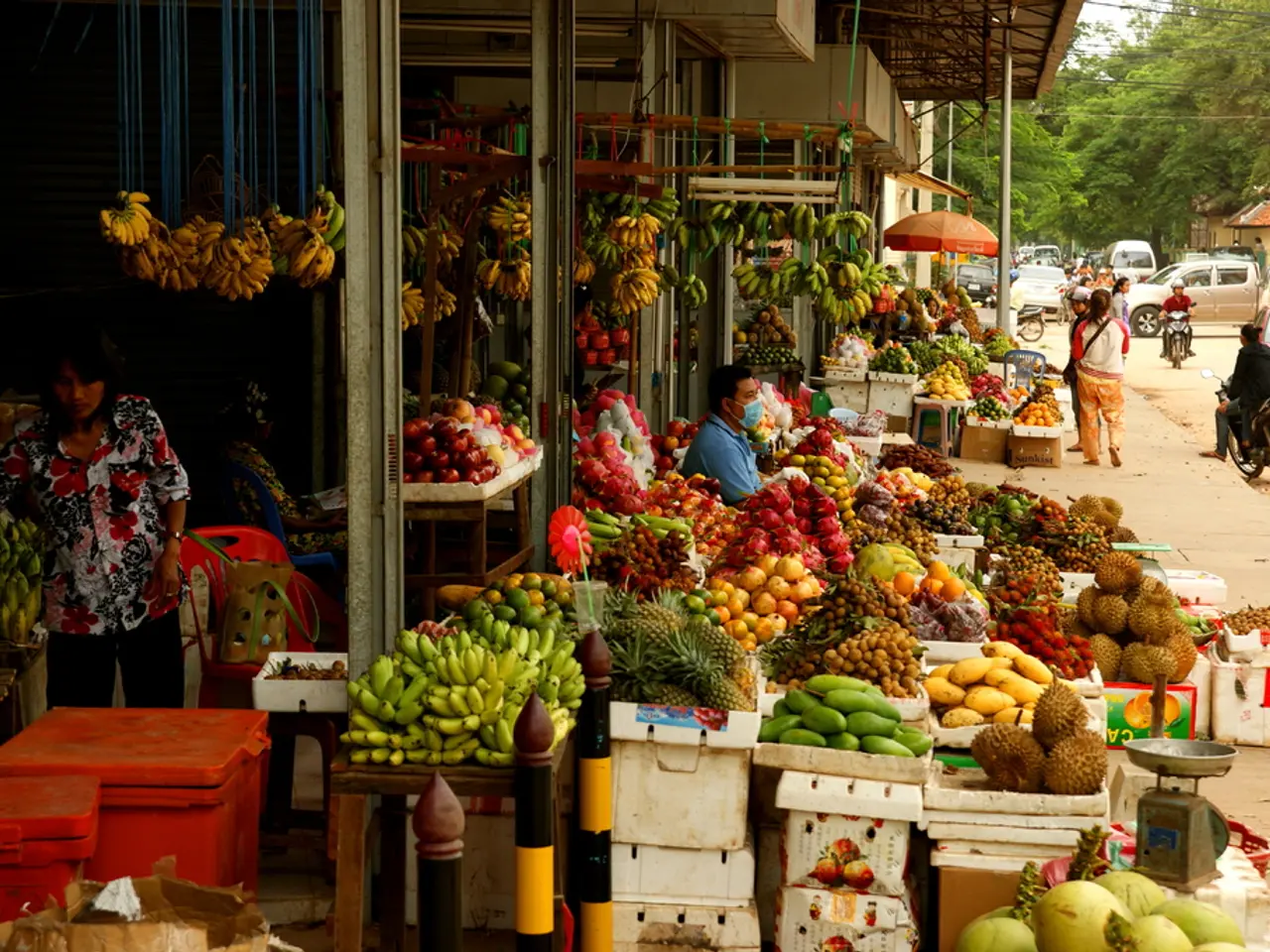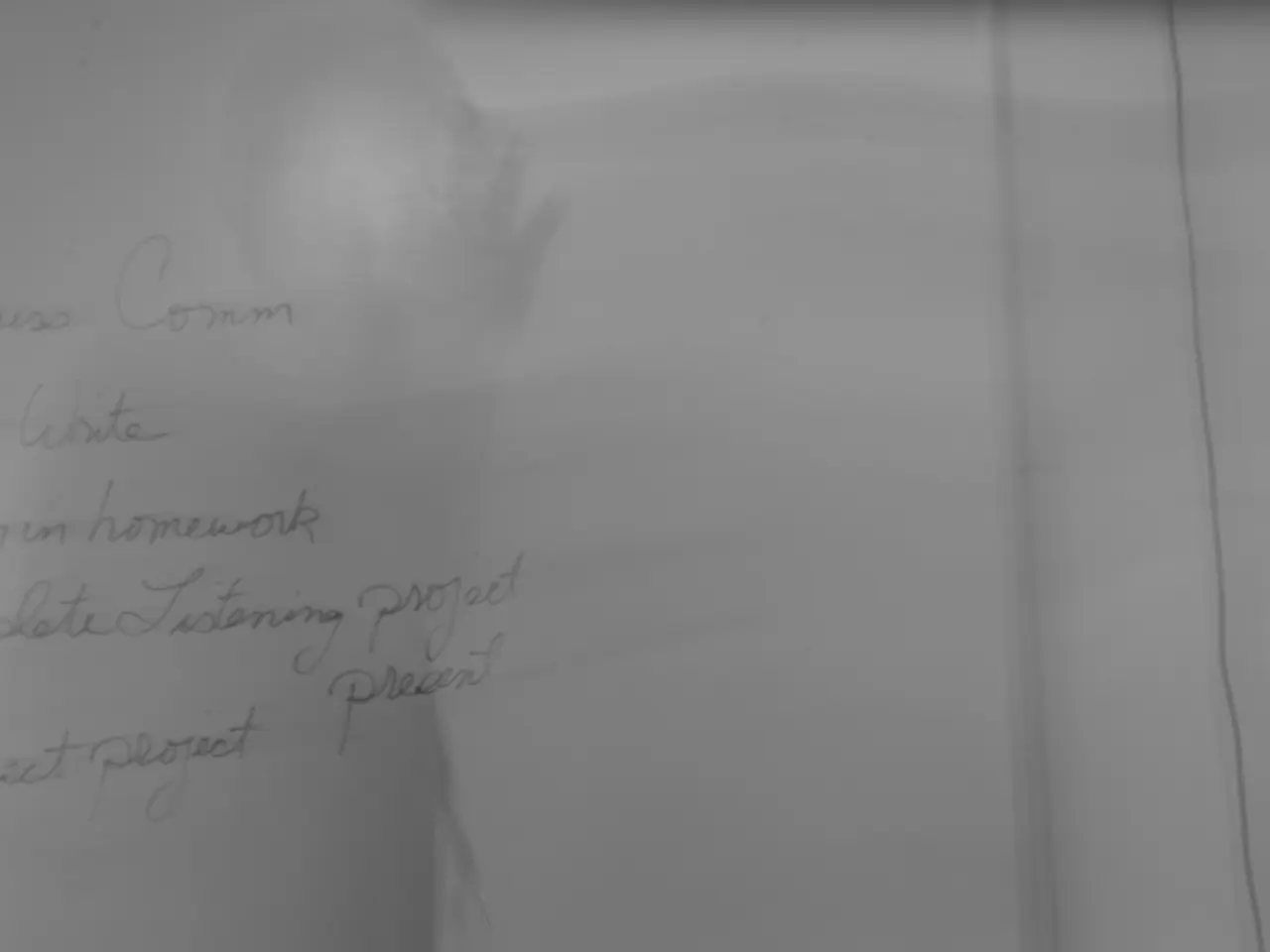Bracing for Impact: How Tariffs Between U.S. and EU Could Affect Portugal's Economy
Trump's Tariffs Potentially Altering Portugal's Export Scenario
The ongoing tariff spat between the U.S. and the European Union (EU) has sent shockwaves through the global trading community, and Portugal is no exception. According to Portugal DECODED, the Bank of Portugal (BdP) has raised an alarm, predicting a possible negative impact on Portugal's economy if the trade war intensifies.
If the trade barriers escalate, Portugal's GDP growth could shrink by a concerning 1.1% over the next three years. Look out for a 0.7% GDP decline in the initial year, with a 0.9% contraction in the first year and a 0.4% contraction in the second. Investment and private consumption are expected to weaken, further slowing economic growth.
Rising trade tensions have cast a shadow of uncertainty over businesses and consumers alike, dampening confidence in Portugal's financial outlook. On 2 April 2025, President Trump announced a 10% tariff on most imported goods, with EU imports, including those from Portugal, facing a 20% tariff. These measures form part of the administration's "reciprocal tariffs" policy, aimed at reducing trade imbalances between the U.S. and its partners.
Industries under Threat: A Closer Look
Wine Industry: Toasting to New Opportunities?
Luís Machado, president of the Douro Intermunicipal Community (CIM), says that tariffs will have an immediate effect on the wine industry – a sector that has spent years cultivating its presence in the U.S. market. However, there's potential for the industry to diversify its exports into new regions.
Energy Sector: Flexibility is Key
Portugal's oil and gas industry is another area that finds itself under the spotlight. Galp Energia, one of the country's leading energy firms, is confident it can redirect gasoline exports to other markets if tariffs disrupt trade with the U.S.
Textiles, Electronics, and Leather Goods: Adapting to the New Landscape
According to BdP's March economic bulletin, textiles, electronics, optics, leather goods, and ceramics are among the industries that are highly dependent on exports. The U.S. market accounts for a significant chunk of sales for many Portuguese businesses, with 4% of firms relying on the U.S. for over 40% of their revenue.
Government Action Plan
In response to growing concerns, Portugal's Minister of Economy, Pedro Reis, has outlined a series of measures to support affected industries. Key government actions include:
- Establishing a tariff monitoring group to keep track of the economic impacts and trade developments.
- Providing support for businesses in accessing EU structural funds for research, technological innovation, and international expansion.
- Meeting with major business associations, including representatives of the automotive, electronics, fuel, textiles, and footwear industries, to assess risks and develop strategic responses.
Portugal's response will be coordinated at the EU level, with Reis emphasizing that excessive EU retaliatory tariffs could raise costs for intermediate goods, potentially affecting domestic manufacturers.
Following her university degree in English with American Literature in the UK, Cristina da Costa Brookes returned to Portugal to pursue a career in Journalism. She has worked at our website for 3 years, focusing her passion on Arts & Culture and community-related news.
The ongoing tariff conflict between the U.S. and the European Union (EU) has raised concerns about Portugal's economy, with the Bank of Portugal (BdP) predicting a possible negative impact if the trade war intensifies. The wine industry, a sector that has built a significant presence in the U.S. market, could be particularly affected. Portugal's Minister of Economy, Pedro Reis, has proposed measures to support affected industries, including establishing a tariff monitoring group and providing support for businesses to access EU structural funds. In response to growing worries, the government will coordinate its actions at the EU level to avoid excessive retaliatory tariffs that could impact domestic manufacturers. Meanwhile, Portugal DECODED, a news outlet, continues to provide comprehensive coverage on the potential effects of these tariffs on Portugal's economy.






